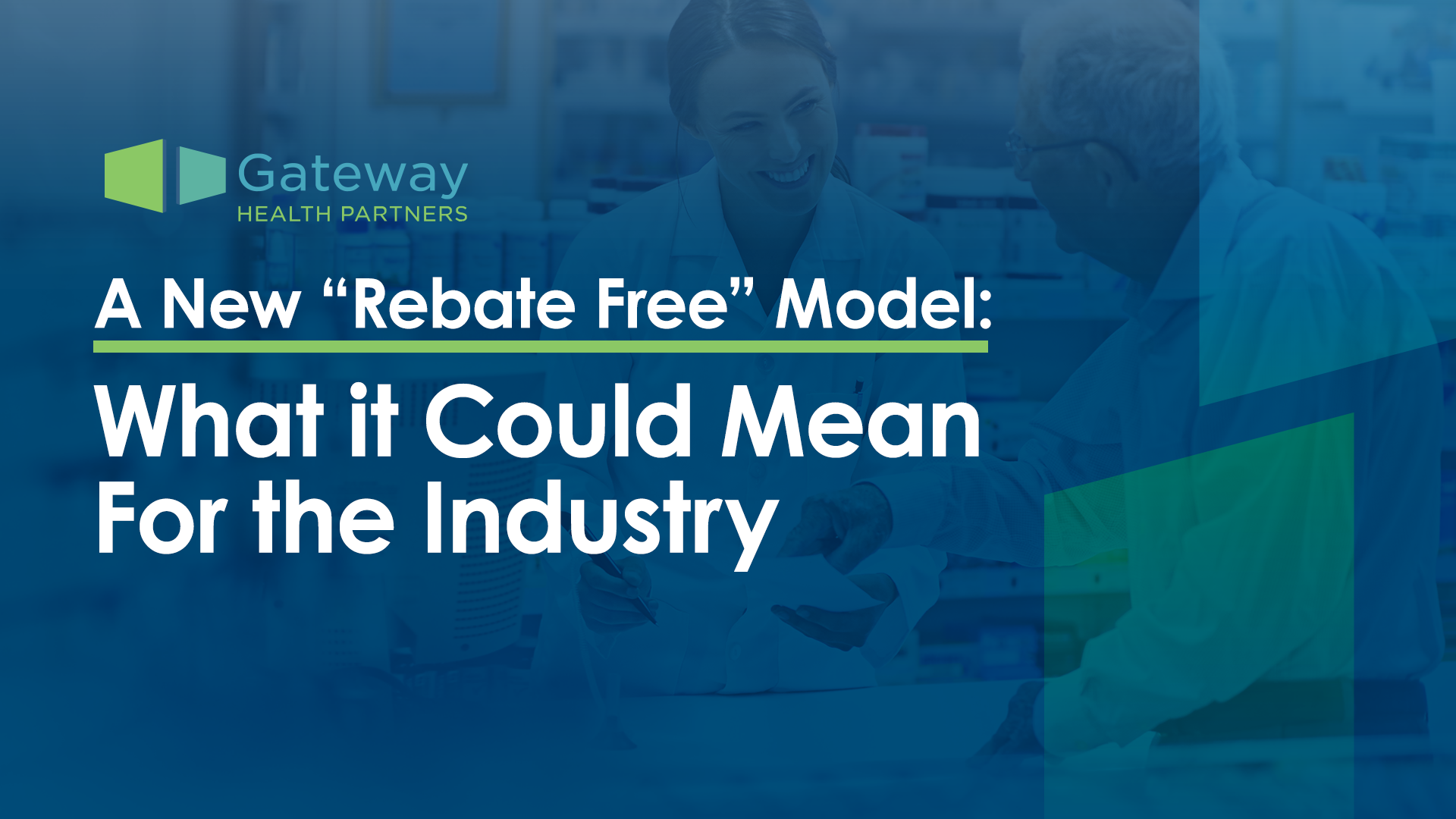Part one of a three-part series on understanding and optimizing medical rebates by Sam Warman Vice President of Client Consulting at Gateway Health Partners.
Since medical rebate programs began, they’ve grown to become essential in offsetting the rising costs of specialty medications administered outside of a pharmacy setting. Despite this fact, many plan sponsors may not know how to navigate the sometimes complex and confusing world of medical rebates because historically these rebates have not been the focus.
As a pharmacist for nearly 30 years, I began developing the medical rebates program at Gateway Health Partners in 2019, with the goal of helping our clients better understand and navigate the world of medical rebates to optimize their savings.
So, what’s the key to understanding how these rebates work? And why should you care about how they impact your business? Here are three key differences between Medical Rebates and Pharmacy Rebates to get you started.
1. Where You Get Your Medication From, Determines what Kind of Rebate It is.
While pharmacy rebates apply to medications that are dispensed and can be picked up at a retail or specialty pharmacy, medical rebates apply to medications that are administered in a clinical setting such as a doctor’s office or hospital. For example, it is common for conditions like arthritis and cancer to have specialty drugs that can only be administered in a clinical setting and therefore fall into the medical rebate category.
2. Two Different Benefit Categories
Pharmacy rebates are directly associated with the pharmacy benefits portion of a health insurance plan. Medical rebates are linked to the medical benefits portion of a health insurance plan and are usually managed through a medical policy. This often makes medical rebate negotiation, eligibility and tracking more complex.
3. Rebate Negotiation, Management and Tracking Services.
This is where pharmacy rebates and medical rebates really differentiate themselves. Pharmacy benefit managers (PBMs) negotiate with pharmaceutical manufacturers for rebates on medications dispensed in pharmacies. These rebates are typically based on volume, market share, and formulary placement. Eligibility is typically based on a patient’s prescription history and utilization requirements. These rebates are also generally more straightforward when it comes to tracking them.
Medical rebate programs are managed by health plans or specialized rebate programs that negotiate medical rebates with manufacturers. This process often requires a bit more collaboration because eligibility can be more complex, and tracking drug utilization in a healthcare setting can often involve multiple providers. The medical rebate payment cycle is also longer, but it is still worth optimizing.
Today medical rebate opportunities continue to grow with innovative new therapies and rising manufacturer agreements for specialty drugs. While so many of these medications administered in a healthcare setting often account for a significant portion of a health plan’s total drug spending, there is no better time to understand these rebates and partner with a company that can help you identify and optimize savings.
Do you have questions about medical rebates or how Gateway Health Partners can help you navigate cost-saving strategies? We’d love to talk.
Email [email protected] to learn more.



